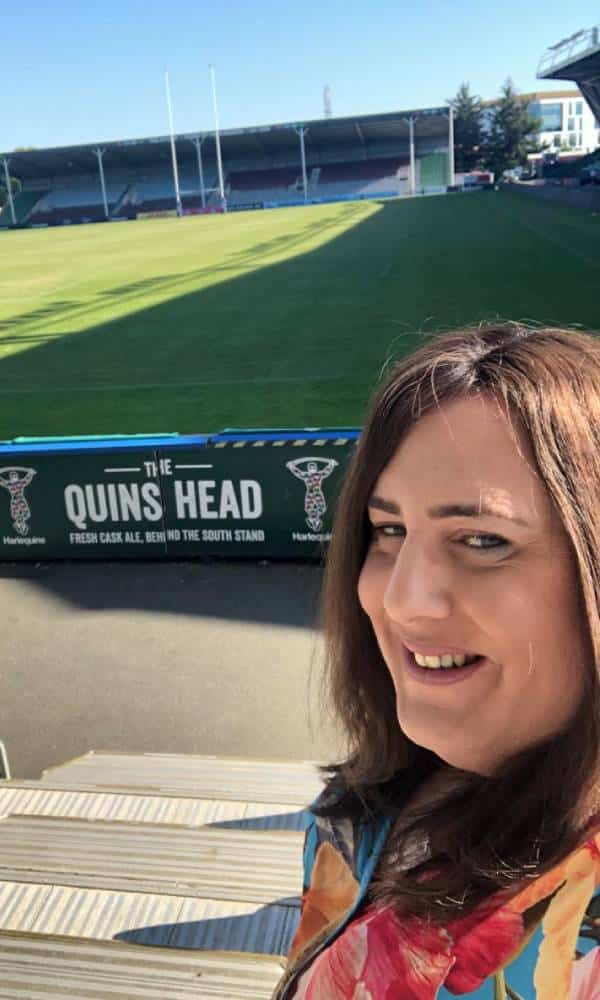Olympic rugby star Ellia Green applauded for ‘bravery and leadership’ after coming out as trans

LGBTQ+ rugby players and fans applaud Ellia Green’s “incredible bravery and leadership” after he came out as trans.
When former rugby sevens Olympic gold medallist Ellia Green came out as trans, he did so at a crucial and worrying time for transgender people in sport.
The Australian made his announcement just a week after the Irish rugby union banned trans women from contact rugby – and a month after they were banned from the sport in England.
He’s been praised for his “incredible bravery” by players and fans worldwide, but they’re worried this representation won’t stop the “tide of bigotry” in rugby. LGBTQ+ fans and players worried sports organisations have let their policies be “shaped by stereotypes, transphobia” and “bigotry” without valid scientific data.
World Rugby banned trans women from playing at an elite level in 2020 and claimed that allowing trans women to play rugby would pose a safety risk to cisgender women. However, LGBTQ+ advocates slammed the global rugby body for using “cherry-picked data from a body of evidence that has been widely contested” to impose the ban.
In July, England’s Rugby Football Union (RFU) barred trans women from playing the sport after considering “peer reviewed research” which claimed there were “physical differences between those people whose sex was assigned as male and those as female at birth, and advantages in strength, stamina and physique brought about by male puberty are significant and retained even after testosterone suppression”.
The York RI Ladies debunked this claim in a blistering thread on Twitter about the “conflicting information” the RFU was putting out. The team cited how having “players of different sizes and strengths” was crucial to the game and how the governing body didn’t produce evidence of “sport-specific non-computerised data on the disproportionate risk to cis women from trans women” before imposing the ban.
Yet, Green’s home of Australia has said there are no plans to introduce such anti-trans policies. Under Rugby Australia’s (RA) current guidelines, trans athletes are welcome to play on teams that align with their gender identity – provided they go through a step-by-step procedure to gain a “gender identity dispensation” from RA and their state and local union.
Ellia Green expressed it was “really difficult” to be open about his gender identity given the current toxic discussions around trans lives and participation in sport.
But he promised himself that he would “continue to live the rest of [his] life in the identity and the body” he knew he was meant to be in after retiring from the sport.
And it’s comments like these that have won him support from UK fans such as openly gay Major League Rugby player Devin Ibañez.
Ibañez told PinkNews that Green showed “incredible bravery and leadership” by coming out – especially during a time when the trans community faces immense attacks in rugby and more broadly.
View this post on Instagram
“As one of the few gold medalist rugby players ever, Ellia has reached a very rare level of success in our sport,” Ibañez said. “The representation of having someone so well respected in our community humanise the struggles our trans family is facing will give much needed inspiration to athletes struggling with their own identity.”
He added: “This shows policymakers in our sport the very real human impact of trying to violate an entire group’s human rights and exclude them.”
Ibañez said the “recent attacks on the trans community” by World Rugby, RFU and IRFU are “unprecedented” and raised “serious ethical concerns about our sports’ leadership”.
“Their leaders have bought into the media attacks against trans people and allowed their policies to be shaped by stereotypes, transphobia, bigotry and no scientific data,” Ibañez said.
‘Trans, non-binary and gender non-conforming people deserve a place in rugby and society’
Pride Sports’ Natalie Washington said it was “wonderful” to see Green come out as transmasculine people are “often erased” in the “horribly toxic climate around sport”.
“Seeing trans people being able to be themselves is always joyous but particularly so in the sport of rugby right now, given the bans recently placed on our participation in both union and league,” Washington said.
She continued: “It’s particularly great to see focus on transmasculine people in sport as their participation is often erased in the horribly toxic climate around sport right now, and we hope Ellia’s announcement will give confidence to those who feel they have to hide parts of themselves in order to feel safe and welcome.
“Trans, non-binary and gender non-conforming people deserve a place in rugby, in sport and in society.”
‘There’s a the tide of bigotry’ against the trans community in rugby
Emily Hamilton – a diehard rugby fan and co-chair of LGBTQ+ Harlequins fan group Quins Pride – told PinkNews the news was a “double-edged sword”.
On one hand, Hamilton felt an “unbounded joy” Ellia Green was able to come out and live his truth, but this was “tempered by the fact” Green had to “keep that secret while he was playing”.
“It’s particularly apposite at the moment given the tide of bigotry that’s sweeping over national governing bodies through the World Rugby decision from a couple years ago that we do have former athletes who are prepared to stand up and speak out,” Hamilton said.
She continued: “But it is tempered with that sadness that somebody had to make a fundamental choice: Do I play a sport I love or do I live openly, authentically as the real me?”

Emily, co-chair of Quins Pride, felt an “unbounded joy” Ellia Green was able to come out but was saddened Green had to “keep that secret while he was playing”. (Provided)
Hamilton said there needed to be more professional, active rugby players “putting their head above the parapet” and advocating for the trans community in sport.
She acknowledged that some may fear the “backlash of abuse” they may face, but she believed change could come if more players “speak up” against anti-trans policies in the sport.
‘Ellia Green inspires me to continue fighting to keep rugby an inclusive sport for all’
Grace McKenzie – who is part of Rugby For All’s international collection of volunteers advocating that rugby is a sport for everyone – said Ellia Green’s touching coming out journey inspired her to keep fighting to keep rugby an “open and inclusive sport for all”.
“As a transgender women’s rugby player, seeing such an accomplished and world-renowned Olympic champion such as Ellia live his authentic truth inspires me to continue playing and fighting to keep rugby an open and inclusive sport for all,” they said.
“This moment is especially powerful in contrast to the appalling transphobia we are seeing from World Rugby, England Rugby and, most recently, Rugby Ireland.”
Ellia Green condemned ‘disgraceful’ and ‘hurtful’ trans bans in sports
The accomplished rugger condemned decisions by World Rugby and International Rugby League to bar trans women from women’s matches, joining the International Swimming Federation (FINA) in pushing forward with horrific anti-trans bans.
“Imagine not being able to do what you love because of how you identify, banning transgender people from sport, I think is disgraceful, and I think it’s hurtful,” Green said. “I think that the alarmingly high rates of suicide and the mental health challenges which trans and gender diverse youth experience will get even worse.”
Green said one of the driving factors behind why he wanted to come out was because he wanted to set an example for his daughter, Waitui.
View this post on Instagram
“I want my daughter to see me one day and say, ‘Wow, my dad was brave enough to talk about this, and my dad was brave enough to share his story with others to help them live their lives a little better, a little easier than what he did at this time,’” Ellia Green said.
He continued: “It is possible to live a life as your true self. It is possible to find love, to have babies, to get married, to do all that, even though there are laws out there and people saying you can and can’t do that. You can do it.”

